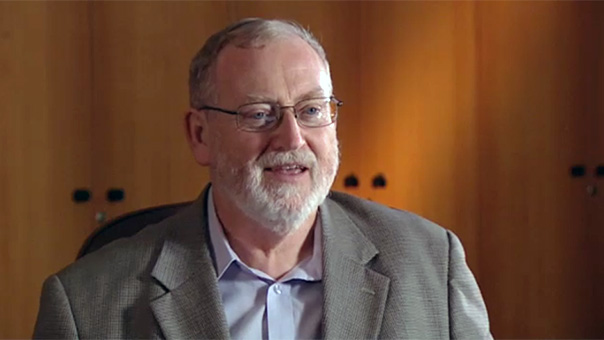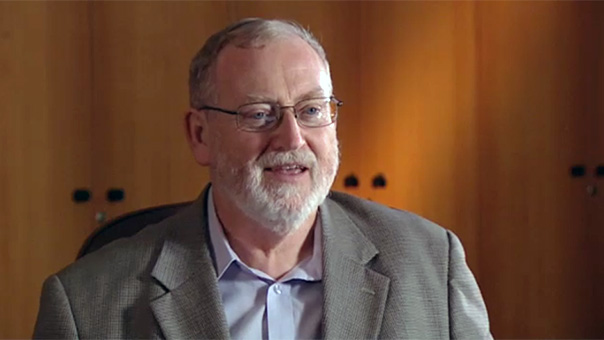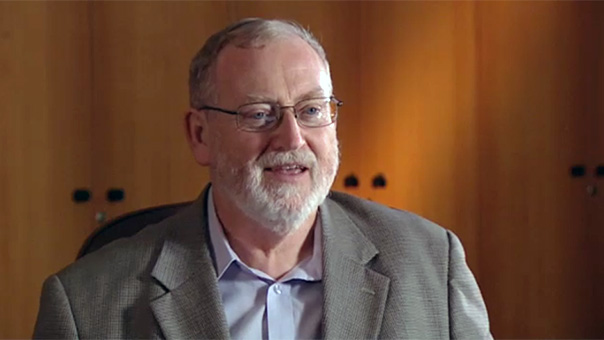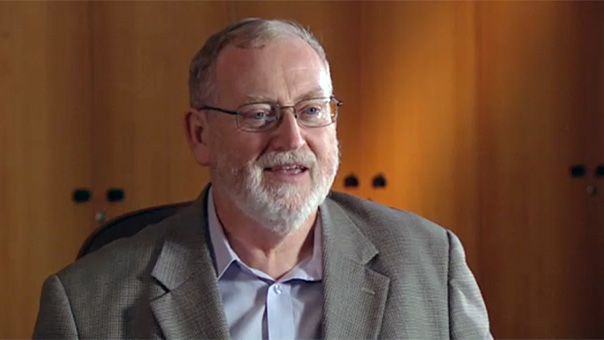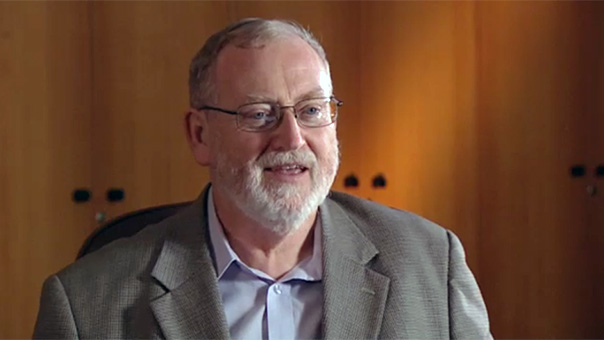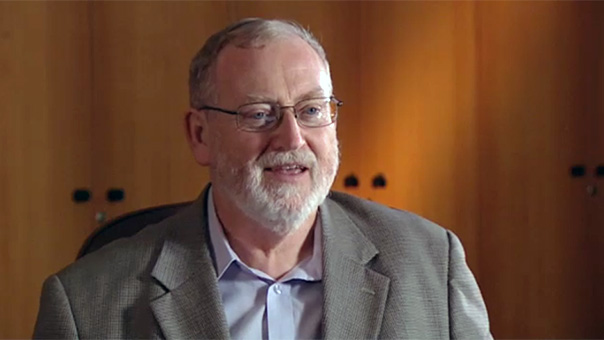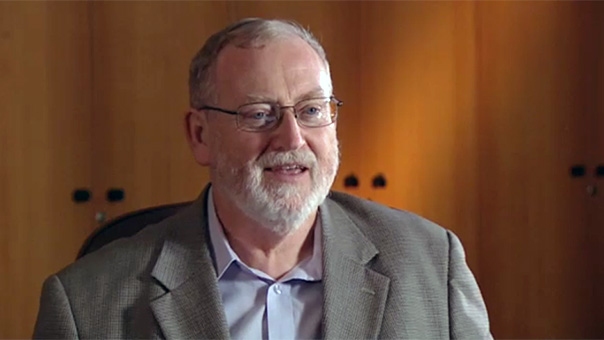1. Nature of economics
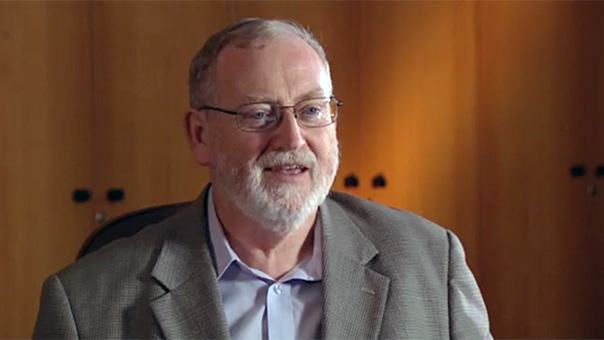
Viewing guide
This 2007 interview with Ross Gittins gives students the opportunity to learn to:
-
examine how work and economic choices affect quality of life
-
assess the impacts of changes in the workforce, especially based on gender and age
-
examine economic issues, costs of and strategies for solving specific economic problems
-
learn about the influence that economics has on people’s lifestyle choices
-
learn about effects of economic choices made by individuals and groups, including government.
The 8 videos in this resource are designed to extend students’ learning of the NESA* Stage 6 Economics syllabus.
-
Listen to and take notes on:
-
the three different perspectives that are discussed
-
Gittins talking about ‘materialism’.
-
-
Make a note of the common economic misconception and discuss the equilibrium that Gittins is referring to.
-
Economics is not just about money. What perspectives would Gittins’ broader interpretation of economics include?
-
Why would Gittins’s opinions challenge ordinary economists?
-
What is the ‘balance’ that Gittins talks about?
-
What changes might you make in your economic choices as a result of hearing Ross Gittins?
Concluding task
List the things that you need in order to survive. On this list, identify which is a need and which is a want. Re-order both of these lists in order of importance. Assume that the first 2 things on both lists are scarce and that you are no longer able to access them. Discuss your economic problem and state how you as individual, a business and the government could overcome this. In your response, you should include real-life examples to support your arguments.
* (NESA) NSW Education Standards Authority (note: this replaces the Board of Studies, Teaching and Educational Standards NSW as of 1 January 2017.)
Completing this activity gives students the opportunity to achieve the following preliminary outcomes:
-
demonstrates understanding of economic terms, concepts and relationships (P1)
-
explains the economic role of individuals, firms and government in an economy (P2)
-
describes, explains and evaluates the role and operation of markets (P3)
-
explains the role of government in the Australian economy (P6)
-
applies appropriate terminology, concepts and theories in economic contexts (P8)
-
The Ross Gittins website
-
Articles written by Ross Gittins on The Sydney Morning Herald website
-
Ross Gittins: Australian Policy Online
Interviewer John Pierce (Secretary, NSW Treasury)
John Pierce: We're often told that the major issues confronting the community at the moment need to be looked at from a social perspective, an economic perspective, an environmental perspective, as if those perspectives are three completely independent and different sorts of perspectives. I think, you know, one of the messages in your book, I would suggest, is that they're not separate and in fact economics looks at all of them and in fact the social and environmental perspectives are part of what economics is about. Is that the way you see it or are they quite different?
Ross Gittins: No, that's certainly the way I see it. I believe, I take, I believe that economics needs to be interpreted very broadly and not narrowly. Economics is about people. If you ignore the social aspects of people's lives and just focus on how much money they're making, how many goods and services they're getting to consume, you won't get the right message. Similarly, if you think that we can run the economy in some kind of vacuum that ignores what the economy, what economic activity is doing to the environment then you're in for a rude shock and the way climate change is going you're going to get that rude shock pretty soon.
John: Yeah, most people seem to think that economics is about money. Your book reminds us that it's not solely, and perhaps not even primarily, about that. So what sort of, what sort of review do you think 'Gittinomics' will receive from other mainstream economic commentators that do tend to see it a bit more narrowly sometimes?
Ross: Well I guess the review I'd expect would be mixed. I think there's a lot in my books that every economist would recognise and agree with, and there are a few things in there that are a bit challenging of conventional economics and say, well look, it is possible for economists to be a bit blinkered, there are these other dimensions to life. Economics is about the material side of life. The material side of life will always be important. All of us are materialists to a greater or lesser extent. There are not many of us who are prepared to just sort of live the life of a monk, but the risk for economists is to think that the material is all that matters. Because it's the bit they specialise in, it's the only bit that matters. One of the things I'm saying is, materialism is important, the material is important, but we've got to put it into a broader context and make sure we get lives that are balanced. Now an idea that our lives should be balanced, should be in some kind of equilibrium, is an idea that an economist ought to find intuitively appealing.
John: Indeed. Thank you for making the choice to agree to this interview today.
Ross: I'm sure it will be worth my while, John.
All Economics syllabus outcomes referred to in this resource are copyright Board of Studies, Teaching and Educational Standards NSW 2017.
